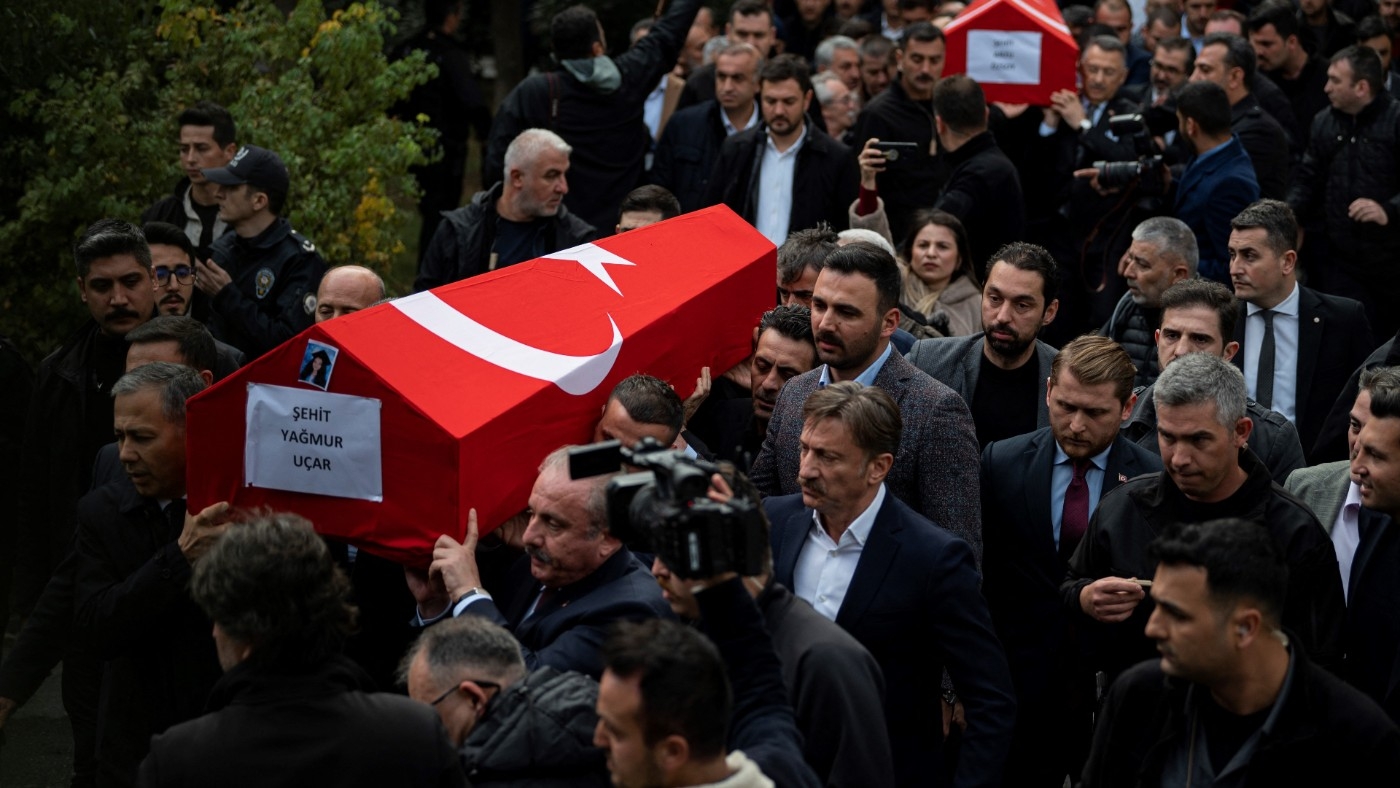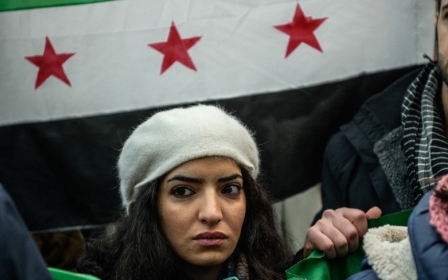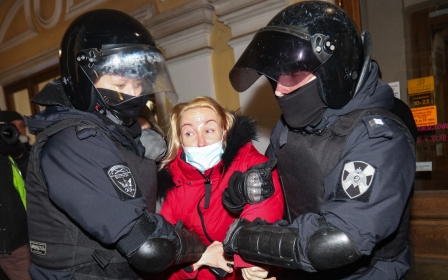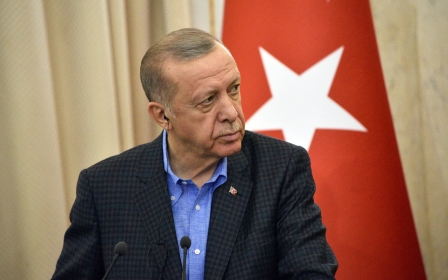Istanbul bombing: Syrians in Turkey fear more animosity after attack

As Istanbul's central shopping district of Taksim recovers from the weekend attack that killed six people and wounded dozens more, Turkey's Syrian community finds itself in the spotlight, fearing a backlash.
Turkish authorities have arrested Ahlam Albashir, a Syrian national the police say confessed to being trained by the armed wing of the Kurdistan Workers' Party (PKK). A further 46 people have been arrested over Sunday's attack.
The PKK on Monday denied responsibility for the attack, and no group has so far claimed it.
But the wider Syrian community now fears they will face a backlash because of the attack. Some Syrians speaking to Middle East Eye have even suggested that the explosion could also have had the aim of pitting Turks against Syrians to further fray relations between the two communities.
'My brother was starting work in Taksim. His face was scared. That's when I first found out about the attack. This is the same street I have walked with my family many times'
Wasim, Syrian-Turkish citizen
Last year hundreds of angry people attacked Syrian refugees in Ankara's Altindag district after two Syrians were accused of killing a Turkish teenager.
New MEE newsletter: Jerusalem Dispatch
Sign up to get the latest insights and analysis on Israel-Palestine, alongside Turkey Unpacked and other MEE newsletters
Turkey shelters over 3.6 million Syrians, making it the world's largest refugee-hosting country. This has led to a rise in tensions.
Wasim*, a Syrian refugee who has now become a Turkish citizen, first found out about the attack in Taksim when his brother called him in the immediate aftermath of the explosion.
"My brother was starting work in Taksim. His face was scared. That's when I first found out about the attack," he said.
"This is the same street I have walked with my family many times. It was so sad and wrong what happened. Everyone in the city has a memory in Taksim."
Wasim said he was worried not only for his brother but for how the attack would impact all Syrians in Turkey. On Twitter, some of his worst fears appear to have already been confirmed. The Syrian hashtag has garnered thousands of tweets following the explosion.
Public figures with large online followings warned that the state needed to deal with Syrians illegally entering the country.
Another popular media commentator said that he doesn't see Syrians or Afghans as "brothers," and the significant number of migrants and refugees settling in Turkey should be sent back as soon as possible.
But for people like Wasim and his family, the terrorist attack doesn't discriminate between Turks and Syrians.
"My mum hasn't been well for two days now. My brother works in Takism, she thinks he might be a victim if there is another attack," said Wasim.
Following the explosion and before the attacker's identity was known, Wasim received a message on WhatsApp, which foretold some of the fears in the community.
"I hope you are doing alright and weren't impacted by the explosion. Please be careful when going around the city (as a Syrian) because people will be using this to their advantage and spread more hatred," said the message.
'Don't target a whole population'
Syrian charities have also been quick to stand shoulder-to-shoulder with the country they have made home.
The International NGO Federation, which is one of several umbrella organisations catering to Syrians, said in a statement that "the PKK/YPG terrorist organisation, which is a threat not only to the peoples in the region but also to all humanity, has carried out many massacres against civilians in Syria".
The statement added: "It should not be forgotten that terrorist organisations have no race, language, nationality or gender. We believe in the brotherhood of the peoples of Turkey and Syria."
Taking aim at politicians and public personalities, the groups expressed their sadness and warned them not to "target a whole population over the identity and nationality of the aggressor".
"Syrians, who are one of the peoples hurt the most by terrorist organisations, should not be targeted through an aggressor," the statement added.
Taking advantage of the situation, one notable far-right politician, Umit Ozdag, chairman of the Victory Party, has been quick to go on the attack.
In a video posted on Twitter, Ozdag and his supporters were set to march to Taksim to "commemorate the martyrs" before being stopped by police.
"Police set up emergency barricades as the Victory Party enters Istiklal Street. Syrians, Afghan, Egyptian etc. enter comfortably," said Ozdag in a video that has been viewed more than a million times.
Lina*, a Syrian refugee now living and working in Turkey, said she was not surprised by this kind of response. "I was expecting it," she told MEE.
"Perhaps some will be fearful of what's to come, but I believe that nothing's changed, really. The animosity that ensues will only be a more concentrated version of what we've been seeing lately," she said.
While some Syrian youth have launched a blood donation drive for those injured in the attack, Lina fears that the community could also see more deportations.
With Turkey heading into an election, Lina thinks that extremist right-wing parties could use the attacks "for electoral purposes and animosity towards the community could increase or become more visible".
For now, however, people like Wasim are avoiding Twitter and following the news, which for him has become emotionally exhausting.
"Threats on Twitter are depleting people's energy and time. Turkish people are still friendly in person. Yeah, there might be some who are being aggressive, but it's not a perfect world," he said.
*Names have been changed for safety purposes
Middle East Eye delivers independent and unrivalled coverage and analysis of the Middle East, North Africa and beyond. To learn more about republishing this content and the associated fees, please fill out this form. More about MEE can be found here.




